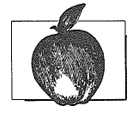Ronald Blythe: Characters and Their Landscapes; Harcourt Brace Jovanovich; San Diego.
Central though it is to any sound system of economics, the traditional notion of private property is wholly inadequate in the world of literature. As Henry David Thoreau once observed:
I have frequently seen a poet withdraw, having enjoyed the most valuable part of a farm, while the crusty farmer supposed that he had got a few wild apples only. Why, the owner docs not know it for many years when a poet has put his farm in rhyme, the most admirable kind of invisible fence, has fairly impounded it, milked it, skimmed it, and got all the cream, and left the farmer only the skimmed milk.
Certainly as a radical individualist at war with all traditional sense of community, Thoreau helped make American life, on the farm and in the city, less stable and less meaningful. Nonetheless, he shared with John Clare, Thomas Hardy, Leo Tolstoy, William Hazlitt, and other gifted writers examined in Characters and Their Landscape the power to lay imaginative claim to a locale. Emerson may have held legal title to Walden Pond, but Thoreau made the pond and its environs more truly his through his imaginative writing than he ever could have through a mere deed of sale. It is, as Ronald Blythe shows in these collected essays, through “the deep blood experience of a place” that a creative writer makes a region uniquely his own. Thus, for instance, John Clare truly “possessed” the village of Helpston more completely than any landholding aristocrat ever could, just as Thomas Hardy held a vaster domain in rural Wessex than did the wealthiest country squire.
Unfurtunately, among the well-intentioned Americans now working to protect posterity from the destructive consequences of all the countercultural demi-Thoreaus, frenetically pounding on their different drums, few pay much attention to the literature by which real “ownership” of American geography is passed from generation to generation. Rather like Thoreau’s “crusty farmer,” most concern themselves with counting the country’s economic, political, and legal apples (usually sour). More careful attention to the “invisible fences” that only poets can erect around farms and homes would surely make the threat of visible barbed wire and barricades less ominous. (BC)

Leave a Reply